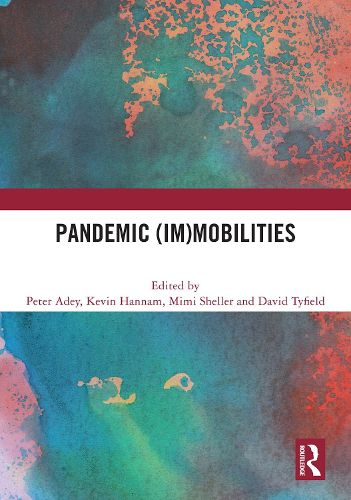Readings Newsletter
Become a Readings Member to make your shopping experience even easier.
Sign in or sign up for free!
You’re not far away from qualifying for FREE standard shipping within Australia
You’ve qualified for FREE standard shipping within Australia
The cart is loading…






In this book leading social science and humanities contributors in the field of mobilities research address the multiple issues generated by the COVID-19 pandemic and its aftermaths. Contributors examine how the pandemic intensified the existing and uneven ways that we move at multiple scales, from the mobilities of viruses to global planetary movements.
As the SARS-CoV-2 coronavirus, or COVID-19 pandemic swept around the world, outpacing public health efforts to contain it, many everyday human mobilities were brought to an abrupt halt in the emergency, while others were drastically reorganized. Viral mobilities unleashed not just a disruption of human mobilities, but also a vast intensification of the existing and uneven ways that we move or don't move: such as in the contexts of tourism and international travel; in how mobilities are governed in cities, or through migration controls at and away from borders; in relation to climate change policies and transitions to net zero; in forms of transportation through which everyday life and work practices are undertaken and reproduced and, ultimately, in the way mobility is (re)valued and felt during and after a global crisis. Chapters in this book address the multiple issues generated by the pandemic and its relation to complex (im)mobilities and the ways they are governed and lived, at many scales, as well as deeper theoretical and methodological issues that arise, such as how to tell stories and visualise (im)mobilities of life under lockdown.
The book was originally published as a special issue of the Mobilities journal.
$9.00 standard shipping within Australia
FREE standard shipping within Australia for orders over $100.00
Express & International shipping calculated at checkout
In this book leading social science and humanities contributors in the field of mobilities research address the multiple issues generated by the COVID-19 pandemic and its aftermaths. Contributors examine how the pandemic intensified the existing and uneven ways that we move at multiple scales, from the mobilities of viruses to global planetary movements.
As the SARS-CoV-2 coronavirus, or COVID-19 pandemic swept around the world, outpacing public health efforts to contain it, many everyday human mobilities were brought to an abrupt halt in the emergency, while others were drastically reorganized. Viral mobilities unleashed not just a disruption of human mobilities, but also a vast intensification of the existing and uneven ways that we move or don't move: such as in the contexts of tourism and international travel; in how mobilities are governed in cities, or through migration controls at and away from borders; in relation to climate change policies and transitions to net zero; in forms of transportation through which everyday life and work practices are undertaken and reproduced and, ultimately, in the way mobility is (re)valued and felt during and after a global crisis. Chapters in this book address the multiple issues generated by the pandemic and its relation to complex (im)mobilities and the ways they are governed and lived, at many scales, as well as deeper theoretical and methodological issues that arise, such as how to tell stories and visualise (im)mobilities of life under lockdown.
The book was originally published as a special issue of the Mobilities journal.